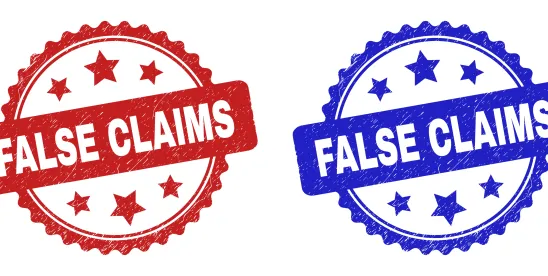On July 2, 2025, the Departments of Justice and Health & Human Services announced a joint working group aimed at “strengthening their ongoing collaboration to advance priority enforcement areas” under the False Claims Act (FCA) – described in the announcement as “one of the government’s most effective and successful tools” for fighting fraud. In Fiscal Year 2024, the Department of Justice recovered more than $2.9 billion through settlements and judgments under the FCA, with $1.6 billion (57%) coming from healthcare-related matters.
The Departments identified six priority enforcement areas:
- Medicare Advantage;
- Drug, device, or biologics pricing, including arrangements for discounts, rebates, service fees, and formulary placement and price reporting;
- Barriers to patient access to care, including violations of network adequacy requirements;
- Kickbacks related to drugs, medical devices, DME, and other products paid for by federal healthcare programs;
- Materially defective medical devices that impact patient safety; and
- Manipulation of Electronic Health Records systems to drive inappropriate utilization of Medicare covered products and services.
Some of these priorities, like Medicare Advantage and kickback schemes, are continuations or evolutions of long-standing priority areas for FCA enforcement. Others are more noteworthy, like prioritization of barriers to patient access to care. Medicare, Medicaid managed care, and the Affordable Care Act impose network adequacy requirements on health plans, and these requirements have not historically been a focus of FCA enforcement.
Also noteworthy is the Departments’ announcement that the working group will consider potentially increasing CMS’ use of payment suspensions under 42 C.F.R. § 405.370 et seq., which permits withholding of payments upon a credible allegation of fraud. Although CMS has long had this authority, it has not been used frequently in FCA matters. Threat of payment suspensions following credible allegations of fraud puts increased pressure on healthcare providers and payors facing FCA investigations and litigation. Notably, there is no administrative process to appeal a suspension.
The working group will also examine use of the Department of Justice’s authority to move to dismiss a qui tam FCA complaint under 31 U.S.C. § 3730(c). The Department does not exercise this authority frequently. A re-examination suggests the Department may be considering increased use of this tool to move to dismiss complaints that do not align with its enforcement priorities, or increased use of dismissal authority to weed out wholly unfounded complaints that a relator pursues despite the government’s declination decision.
The Department of Justice’s announcement at the end of May 2025 of the formation of a Civil Rights Fraud Initiative signaled a new use of the False Claims Act, as discussed in a prior blog post. This latest announcement makes clear that healthcare fraud remains a top enforcement priority. Healthcare providers and payors – especially Medicare Advantage and Medicaid managed care plans – should closely monitor FCA enforcement in this space.



 />i
/>i

